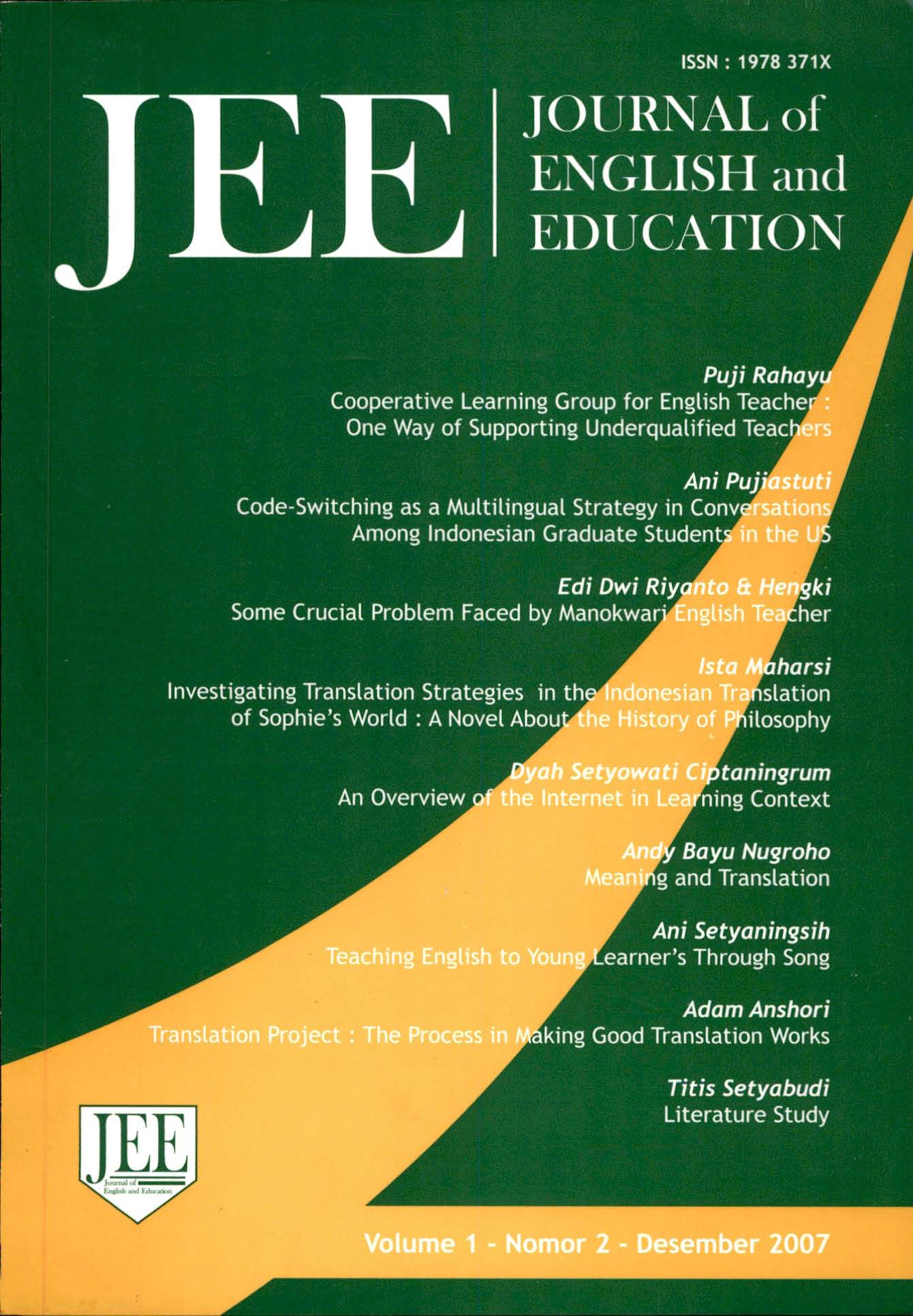Main Article Content
Abstract
English course books are one of the main elements determining the success of the English teaching-learning process to meet the pre-determined objectives. Currently, the teachers of, English in Indonesia face a complicated tasks in choosing suitable English teaching materials in die form of English course books. The purpose of the article is to discuss an appropriate way to choose English course books suitable with the students' socio-economic cultural backgrounds to facilitate students' learning. The intended way is that the teachers of English do an empirical evaluation of the course books they are using, a retrospective evaluation. The evaluation can be done through either macro or micro evaluation. The tangible and practical evaluation to do is a micro evaluation in which the teachers of English retrospectively and thoroughly evaluate certain parts of the English course books representing the whole content The criteria to valuate include goals, students' backgrounds (topics and vocabulary related to students' lives), cultural acceptability, language skills to develop quality of practical materials in the classroom (activating students' participation), roles, sequencing of the materials (procedure), formats, instructions, and visualization. If the teachers of English find out such English course books through their evaluation, they can use the course books in the following terms. It a wise way to choose English course books to be used to optimally reach the pre-determined objectives. If the teachers of English do not find such suitable English course books through their evaluation, they can add materials to or reduce the content of the course booksand finally they will have teachers' edition English teaching materials.
Keywords
Article Details
Copyright (c) 2016 JEE, Journal of English and Education

This work is licensed under a Creative Commons Attribution-ShareAlike 4.0 International License.
Authors who publish with this journal agree to the following terms:
- Authors retain copyright and grant the journal right of first publication with the work simultaneously licensed under a Creative Commons Attribution-ShareAlike 4.0 International License that allows others to share the work with an acknowledgment of the work's authorship and initial publication in this journal.
- Authors are able to enter into separate, additional contractual arrangements for the non-exclusive distribution of the journal's published version of the work (e.g., post it to an institutional repository or publish it in a book), with an acknowledgment of its initial publication in this journal.
- Authors are permitted and encouraged to post their work online (e.g., in institutional repositories or on their website) prior to and during the submission process, as it can lead to productive exchanges, as well as earlier and greater citation of published work (See The Effect of Open Access).

